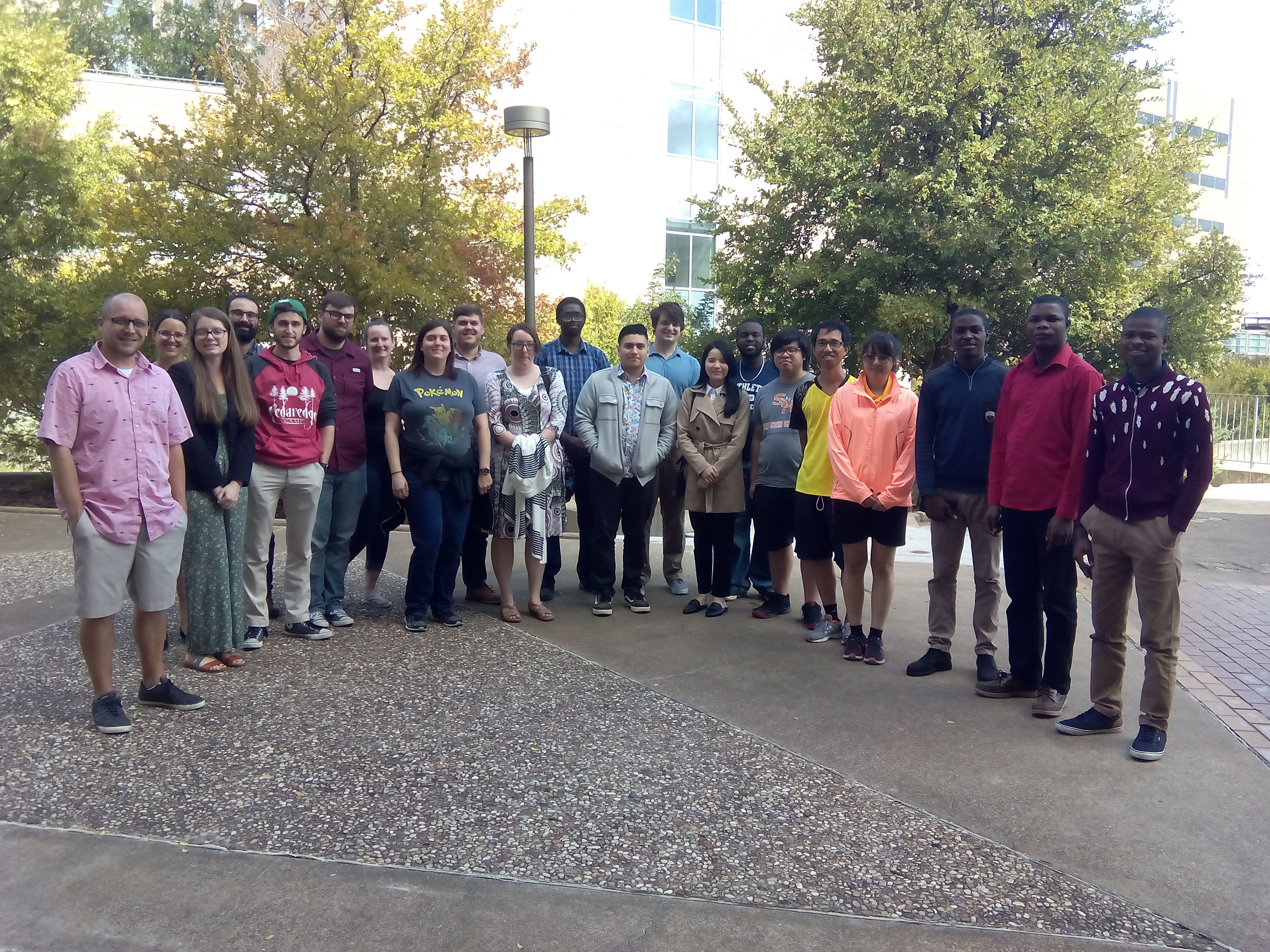The Graduate Algebra Symposium is a workshop organized and run by graduate students, for graduate students. The goal of the workshop is to bring together graduate students from Universities in the area to discuss their common interests in Algebra. This is achieved by a conference style gathering where participants are encouraged to share their research with other graduate students in our field, gain experience in giving talks, and build a network of local researchers. This is a collaborative effort between Oklahoma State University, the University of Oklahoma, the University of North Texas, the University of Texas at Arlington, and Texas A&M University.
The workshop will be held on
- Saturday October 19 in Blocker Building, room 117, from 9:00 am to 2:00 pm.
This will be the first edition of the Graduate Algebra Symposium held at Texas A&M University.
